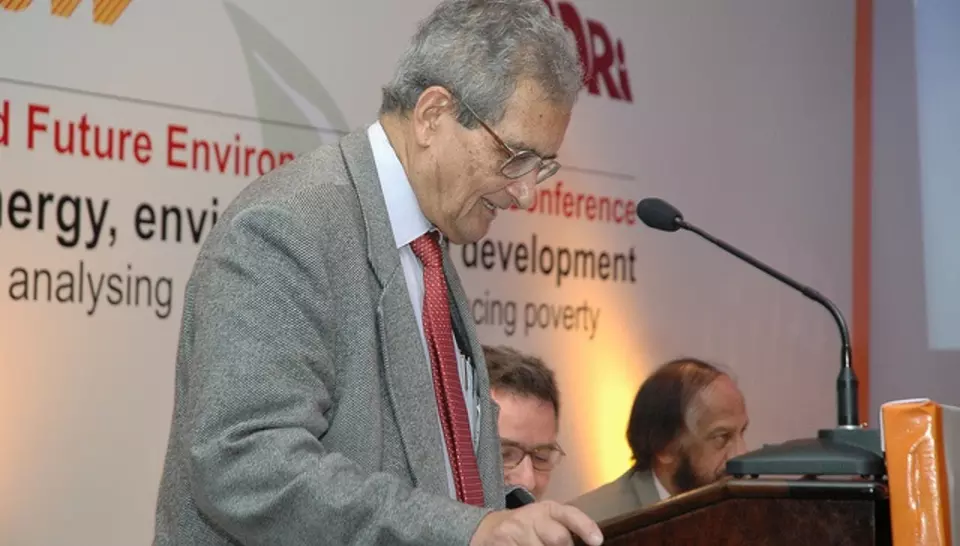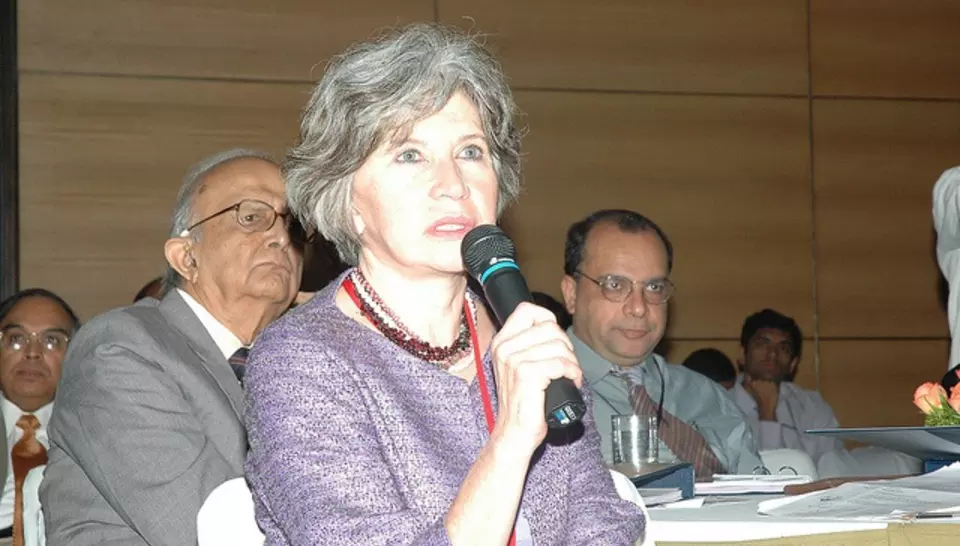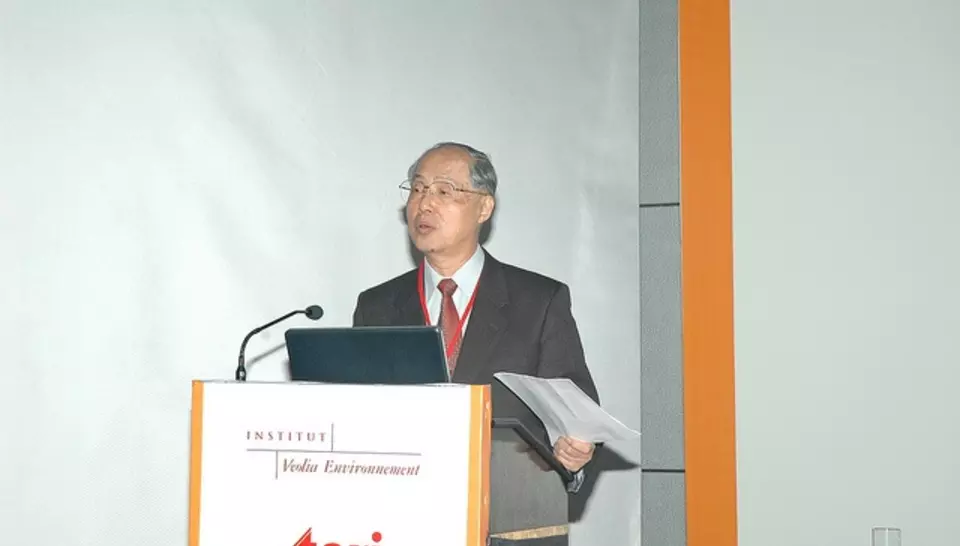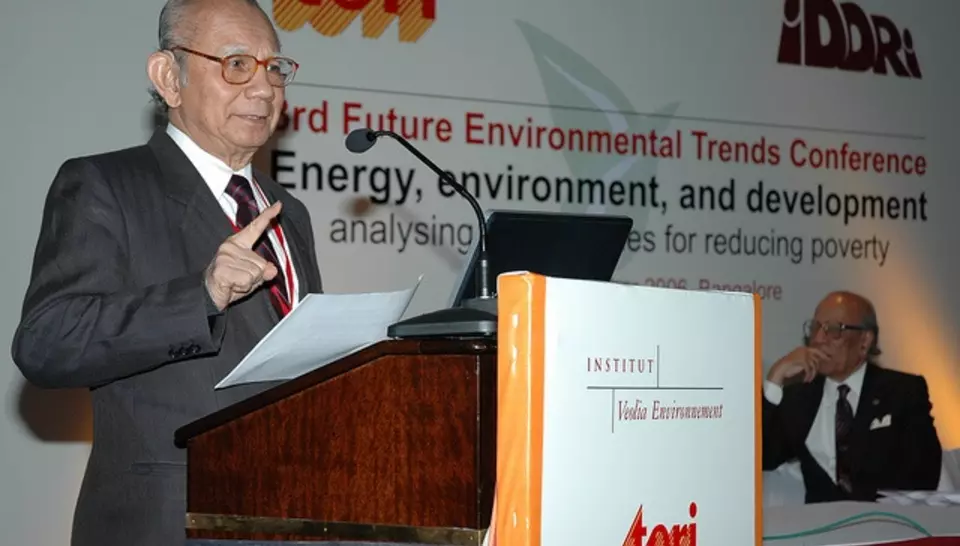14, 15 and 16 december, 2006
Bangalore, India
Poverty and access to essential services
The Institut Veolia Environnement, in cooperation with TERI and IDDRI, organized its 3rd conference in Bangalore on the theme of "Energy, Environment, and Development: Analyzing Opportunities for Reducing Poverty." The purpose of the event was to bring together Asian experts to discuss the links between energy, the environment, and poverty.
The combination of conceptual presentations and practical case studies opened the way for a concrete, rich dialogue, as well as a high level of audience interaction.
250 participants
Participants from 23 different countries
60 speakers
The conference had six themes, each having specific topics as described below. All themes focused on the linkages between energy, environment, and development. All are long-term issues which require balanced enquiry and careful analysis in terms of present and future development pathways. Some of the topics related to relatively less studied questions on which the conference could focus global attention and act as a catalyst for action.
Theme I: Energy – the “missing MDG”?
This session discussed how energy policies can create opportunities for the poor, promote employment generation in rural areas, and reduce the negative environmental effects of current energy development? Which initiatives have been successful on the ground? How have the Johannesburg partnerships for sustainable development fared? Can these lead to self-reinforcing long-term improvements in standards of living?
Theme II: Sustainable lifestyles
This session focused on topics such as patterns of energy use in food production or waste generation, modification of consumption patterns, and sustainable urban mobility.
Theme III: Local dimensions of global environmental challenges
This session focused on issues of equity, livelihoods, and access to common property resources, conflicts arising from water scarcity and threats to food security, and linkages between climate change adaptation and the Millennium Development Goals.
Theme IV: Globalization – forces of change
This session tackled issues of energy access in this changing global scenario. What conditions are essential to ensure that globalisation and economic growth translate into reduced inequities? What business models are needed to enhance access of the rural poor to energy and other services? How should we combine technology innovation, local empowerment, and adaptation of existing knowledge and experience to suit local needs to provide goods and services that enhance their productivity?
Theme V: Technological leapfrogging
This session addressed issues of technology adaptation, building capability, ensuring financial and physical access, and policy frameworks that facilitate technology adoption.
Theme VI: Revitalizing research and development
This session addressed such questions as how effective the R&D institutions have been in servicing growth patterns in Asia, how the educational system would move to a satisfactory level of R&D and innovation. It broadly aimed to arrive at a roadmap for developing countries in general to move them towards higher S&T capacities and actions for sustainable development.
Advisory Committee
Malik Amin ASLAM, Minister of State for Environment, Government of Pakistan
Benji DORJI, Advisor-National Environment Commission, Royal Government of Bhutan
Akio MORISHIMA, Chair, Board of Directors, Institute of Global Environmental Strategies, Japan
Mohan MUNASINGHE, Chairman, Munasinghe Institute for Development, Sri Lanka
Rajendra K PACHAURI, Director-General TERI and Chairman Intergovernmental Panel on Climate Change
Emil SALIM, Former Minister for Population and Environment, Indonesia
Amartya SEN, Nobel Laureate and Professor of Economics and Philosophy, Harvard University
Farooq SOBHAN, President, Bangladesh Enterprise Institute, Bangladesh
Georges VALENTIS, Managing Director, Institut Veolia Environnement
Zhongyuan LU, Director, Department of Macroeconomic Research, Development Research Centre of the State Council, China





